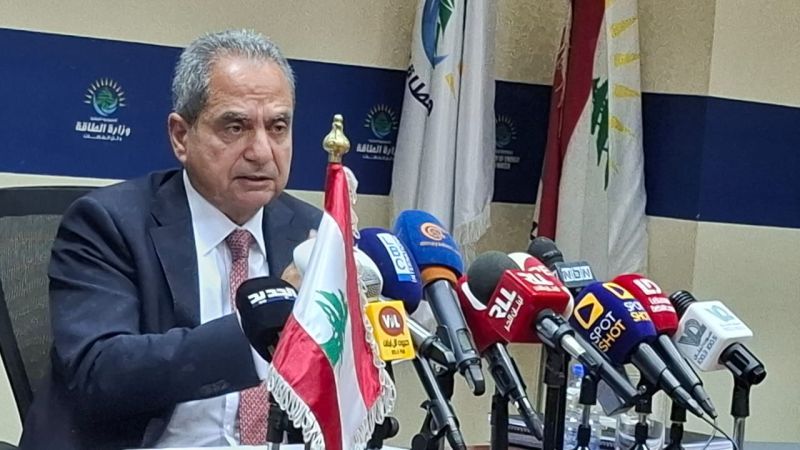
Lebanon is grappling with one of its worst water crises in decades after rainfall this year fell by 51% compared to the annual average, Energy and Water Minister Joe Saddi warned Tuesday.
In his remarks at a press conference, Saddi said the sharp decline in precipitation, compounded by fewer rainy days and intense bursts of rain that the soil failed to absorb, has created a severe shortage affecting both households and electricity production. Hydroelectric plants, he noted, have already lost hours of generation due to shrinking reservoir levels.
“In other countries, such circumstances are anticipated years in advance through infrastructure upgrades, water reserves, and preventive emergency plans,” Saddi said, lamenting Lebanon’s lack of preparedness.
The minister outlined a series of immediate measures adopted by regional Water Authorities and the National Litani Office, based on emergency plans drafted in April. These include a media awareness campaign to promote water conservation, mapping of drought-prone areas in cooperation with UNICEF, and an appeal to gas station owners to reduce water use in car washes.
On August 6, the ministry also submitted a list of urgent needs to international donors, including the installation of solar-powered wells, in hopes of securing rapid financial aid.
Saddi further pledged to address the stalled construction of four controversial dams, Mseilha, Janne, Bekaata, and Balaa, projects long criticized for their inability to retain water due to unsuitable soil. He said their future would be determined by a scientific evaluation from international experts with no prior involvement in Lebanon’s dam projects.
Looking ahead, the ministry is preparing new regulations for well management in partnership with the American University of Beirut (AUB) and the French Development Agency (FDA). Priority, Saddi said, will be given to the maintenance of licensed wells.
In parallel, he revealed that a list of 2,503 illegal wells has been submitted to the Ministry of Finance’s Directorate of Land Affairs, with requests to mark them in property records. A similar appeal was sent to the Ministry of Interior and Municipalities, urging the immediate halt of illegal well usage.
“The real challenge is not only today’s crisis but preventing Lebanon from reliving it in the future,” Saddi concluded.



Comments